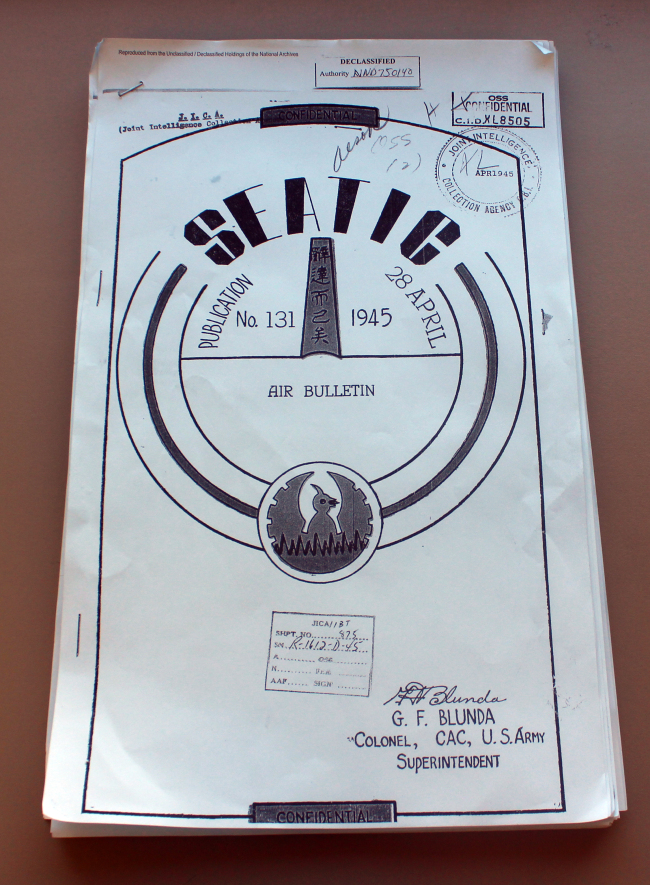The Japanese government systematically operated “comfort women” facilities as part of its military “amenities” during World War II, documents showed, contradicting Tokyo’s denial of the wartime sexual enslavement of Asian women.
According to declassified documents from the U.S. National Archives and Records Administration, the Southeast Asia Translation and Interrogation Center confirmed that the Japanese government had run “comfort women” facilities for the military. The confirmation came while the center was questioning a Japanese soldier captured in Myanmar in 1945. The document was acquired by Yonhap.
 |
U.S. declassified documents showed that Tokyo had systematically run “comfort women” facilities during World War II. (Yonhap) |
When the U.S. government grilled him on whether Tokyo had kept “comfort girls” as military “amenities,” the war prisoner answered that one place was located in Maymyo, Mandalay Division, in Myanmar, the declassified documents showed. He also added that the service cost around 3.5 to 5 yen ($0.03 to $0.05) while a soldier’s monthly wage was 24 yen.
The document, named “OSS CONFIDENTIAL C.I.D XL8505” was written by an American lieutenant colonel in April 1945.
Another declassified document also confirmed that a Japanese army surgeon regularly conducted medical checkups on “comfort women” working at a service facility in Manchuria, China. The information was verified by an American intelligence official who interviewed a female Chinese nurse. According to the report, about 20 Japanese women classified as grade 1 and some 130 Korean women grouped in lower grades were all infected with venereal diseases.
The document ― “CONFIDENTIAL JICA R-565-CH-45” ― was written in May 1945 by an American major who served in the military near Kunming, China.
Based on an independent investigation into such documents, the U.S. justice ministry has banned 16 Japanese war criminals involved in sexual slavery from entering the country since 1996, Yonhap reported.
The ministry, however, refused to release the list, citing the declassification deadline, it added.
By Lee Hyun-jeong (
rene@heraldcorp.com)








